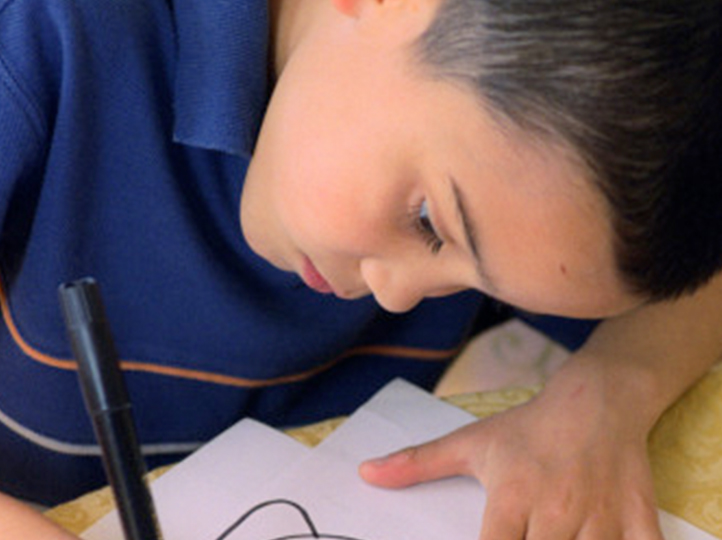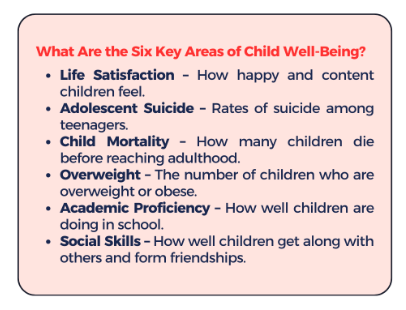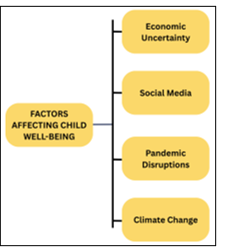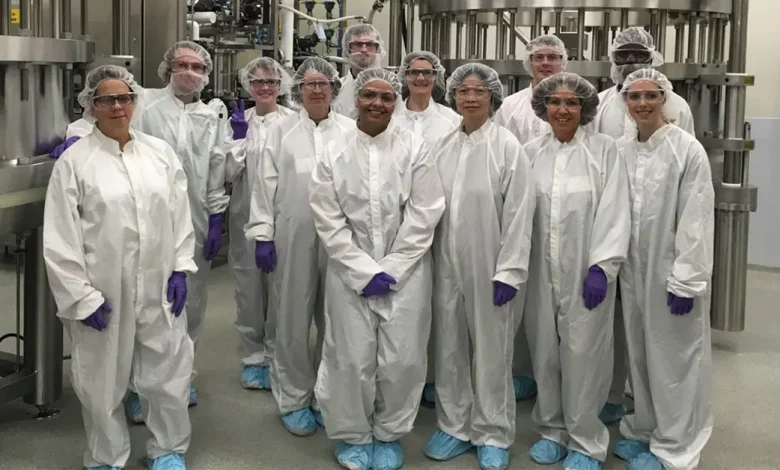- Courses
- GS Full Course 1 Year
- GS Full Course 2 Year
- GS Full Course 3 Year
- GS Full Course Till Selection
- Online Program
- GS Recorded Course
- NCERT (Recorded 500+ Hours)
- Polity Recorded Course
- Geography Recorded Course
- Economy Recorded Course
- AMAC Recorded Course
- Modern India, Post Independence & World History
- Environment Recoded Course
- Governance Recoded Course
- Science & Tech. Recoded Course
- International Relations and Internal Security Recorded Course
- Disaster Management Module Course
- Ethics Recoded Course
- Essay Recoded Course
- Current Affairs Recoded Course
- CSAT
- 5 LAYERED ARJUNA Mentorship
- Public Administration Optional
- ABOUT US
- OUR TOPPERS
- TEST SERIES
- FREE STUDY MATERIAL
- VIDEOS
- CONTACT US
Report Card 19: Child Wellbeing in an Unpredictable World
Report Card 19: Child Wellbeing in an Unpredictable World
20-05-2025

Significance: GS I & II; Society; Minority Sections of the Society;
Why in the News?
Recently, a UNICEF’s Report Card 19 was released that had an overview over the world and studied on how children in rich countries are faring in a world that’s changing fast and often feels uncertain.
What are the Key Highlights of the Report? 
- Trends Since 2000: Some areas, like child mortality, have improved a lot-fewer children are dying young.
- Academic proficiency and social skills have seen mixed results, with some countries improving and others falling behind.
- Life satisfaction and mental health are worrying: more children report feeling unhappy or anxious, and suicide rates among teens have not improved much.
- The number of children who are overweight continues to rise in most countries.
According to the report, What are the changes happening in the present context?
- Children Are Less Happy: The report finds that children in many wealthy countries are feeling less satisfied with their lives. For example, in countries like France, Japan, and the United States, the percentage of children reporting high life satisfaction fell from 74% in 2018 to 62% in 2022.
- Worsening Mental Health: Adolescent suicide rates have not improved, and in some countries, they have increased. For instance, in New Zealand, the adolescent suicide rate is among the highest in the developed world, with 15 per 100,000 adolescents

- More Overweight and Obese Children: The share of children who are overweight or obese continues to rise. In Greece, Italy, and the United States, more than 1 in 3 children are now overweight.
- Falling Academic Performance: Many countries saw a decline in academic proficiency. For example, in Sweden and Finland, reading and math scores have dropped compared to previous years.
- Impact of COVID-19: The pandemic made things worse-children missed school, lost social connections, and families faced more stress. This led to more children underperforming at school, feeling isolated, and experiencing mental health challenges.
- Progress Is Fragile: Even gains made in reducing child mortality and improving well-being are now at risk due to global shocks like pandemics, economic uncertainty, and climate change.
|
Government Initiatives in India:
|
What can be done to help children thrive?(UNICEF suggests)
- Enhance Mental Health Support: Schools and communities should provide accessible counseling services and mental health programs;
- For example, offering school-based psychologists and peer support groups to help children cope with stress, anxiety, and bullying.
- Implement Poverty Reduction Policies: Governments should introduce targeted cash transfers, child allowances, and affordable childcare services to support low-income families, ensuring children have access to nutritious food, healthcare, and stable housing.
- Promote Healthy Eating and Physical Activity: Initiatives like providing free healthy school meals, banning junk food advertising to children, and building safe playgrounds encourage kids to eat better and stay active, directly combating rising childhood obesity rates.
- Strengthen Education Systems: Investing in teacher training, modern learning materials, and inclusive classrooms helps every child, including those with disabilities or from minority backgrounds, reach their full academic potential and adapt to future challenges.
- Schools should integrate social-emotional learning (SEL) programs and organize group activities, such as team sports and collaborative projects, to teach empathy, communication, and teamwork.




